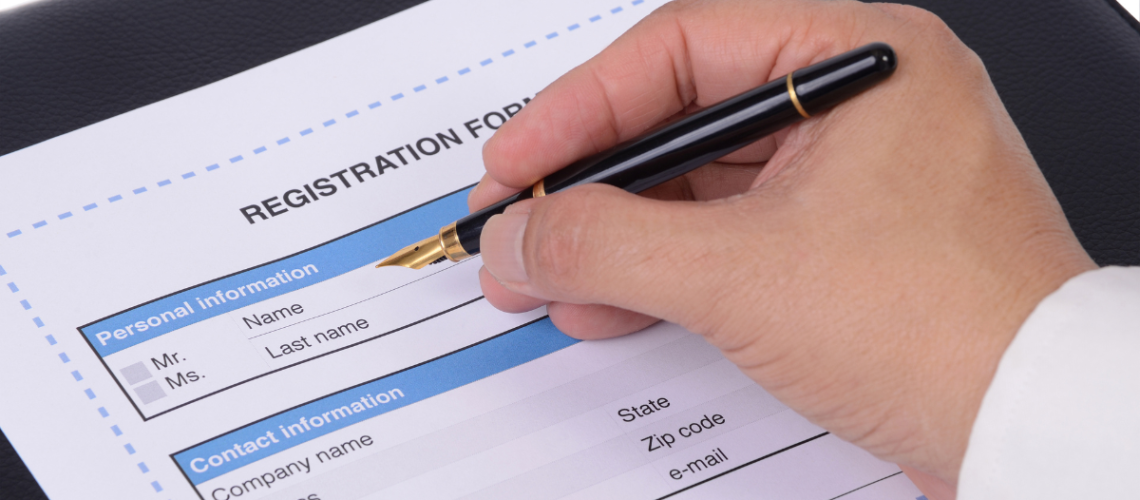(Article published on Nov 25, 2020)
The Republic of Malta is the smallest member state in the European Union. Yet, this nation has been credited with one of the fastest-growing economies in the European Union. The positive economic impact resulting from Malta’s efforts to diversify its business sectors complemented by Foreign Direct Investment (FDI) has propelled exponential growth.
As a result of Malta’s;
- Strong economy
- Strategic location
- Diverse business markets
- Favourable company regulations
- Competitive Tax Rates
- Highly skilled English speaking workforce
Along with the island’s cosmopolitan lifestyle, have contributed to a formula of success for many of the companies operating out of Malta.
In Malta, businesses are structured by either forming a ‘Limited Liability Company’ or a ‘Partnership’.
What are the fundamental differences between Limited Liability Company and Partnership?
1 – Limited Liability Company
There are two types of Limited Liability Companies;
- The Private Limited
- The Public Limited

Public Limited Company names are followed by the suffix ‘Plc’.
The difference between these two types of Limited Companies are as follows;
Directors
Private Company:
- Minimum number: 1
- Maximum number: No maximum number.
Public Company:
- Minimum number: 2
- Maximum number: No maximum number.
Shareholders
*Private Company:
- Minimum number: 2
- Maximum number: 50
Public Company:
- Minimum number: 2
- Maximum number: No Maximum number.
*A Private Ltd Liability Company can also have a minimum of 1 shareholder. This is known as a ‘Single Member Company’ and may qualify as a ‘Private Exempt Company’.
To qualify as an ‘Exempt Company’, interested parties must include the following annotations on their Memorandum or Articles of Association;
- The number of individuals holding debentures of the company should not exceed 50
- No corporate body can be appointed as director of the company
- Company policy is determined only by the director, members, or debenture holders
What are the Memorandum or Articles of Association?
The Memorandum of Association is one of the most important documents needed for the incorporation of a company. This corporate document regulates the relationship of a company with the outside world.
The Articles of Association dictates the fundamental conditions of how a company will operate.
Together, both of these documents are submitted when forming a company in Malta.
The Memorandum of Association needs to include;
- Name of the company
- The type of company formation; ‘Private’ or ‘Public’
- Registered address
- Details of subscribers
- Objects of the company
- Amount of authorized and issued share capital
- Number of shares plus the amount paid on each by the company’s shareholders
- In the case where shares are divided into different classes, to include the rights attached to each
- Details of Directors, and Company Secretary
- Details of persons who are vested with the legal and/or judicial representation of the company
- Period affixed if any for the duration of the company
Share Capital
Private Company: Minimum Amount: €1,165 – 20% of which has to be deposited
Public Company: Minimum Amount: €46,588 – 25% of which has to be deposited
Share Capital is deposited in a bank account of one’s choosing under the name of the company information.
Malta Stock Exchange
A Private Company is not allowed to trade its shares on the Malta Stock Exchange.
A Public Company may trade its shares on the Malta Stock Exchange.
1 – Partnerships
In Malta, there are two types of partnerships that small and medium-sized businesses or foreign investors can set up.
These are;
- Partnership en nom collectif (General Partnership)
- Partnership en commandite (Limited Partnership)
The main difference between these two Partnerships lies on the liability of the shareholders.
Under a General Partnership, shareholders share the liability of the company’s debts and obligations with all of their assets.
A Limited Partnership may operate under two different types of Partnership, a ‘General’ or a ‘Limited’.
- Under a General Partnership, all the assets of the shareholders are subject to the business liabilities.
- Under a Limited Partnership, shareholders are deemed liable only to the extent of their contributions paid to the company. The capital of a Limited Partnership may be divided into shares
The document to incorporate a Partnership is called ‘A Deed of Partnership’. Regardless of what type of Partnership is formed, it needs to include;
- Name of Partnership
- Share capital which is normally listed as ‘Contribution’
- Legal identification documents bearing the name, identity, and residential address of all the partners
- Registered address
- Objects
- Representation
A Deed of Partnership needs to specify between the two types of Partnership (i.e. who are the General and/or Limited partners?).
A fee is payable upon registration, however, a bank deposit slip is not necessary.
Annual accounting reports — that are not subject to an audit — must be submitted to The Malta Business Registry.
______
If you decide to open a company in Malta and need a business address without the need for an office, the best solution is to look at Business Presence plans.
SOHO Office Space offers varying services depending on your business needs.
How do I register a company in Malta?
If all documentation required is in order, the process to register a company in Malta is swift and straightforward.
The following steps are what is necessary for a successful process for individuals wishing to register a company in Malta;
- Choose between a ‘Limited Liability’ or ‘Self-Employed‘
- Reserve the Company name
- Draft and notarize ‘The Memorandum and Articles of Association’
- Deposit the minimum share capital required with a bank of your choosing
Once the above is complete, you may now file your application with The Malta Business Registry. The following set of documentation needs to be presented;
- Certified passport copies of all the Shareholders, Directors and Company Secretary
- Confirmation of the Company name reservation
- The Memorandum and Articles of Association
- Bank receipt confirming that the Share Capital was deposited.
Upon successful registration, the business then needs to obtain;
- A Business License — Licensing fees vary. Licences issued in Malta are often valid for the entire EU
- Tax Identification Number
- PE Number
- VAT Identification Number
One also needs to register and fill out the registration and/or termination forms for all employees with JobsPlus, formerly known as The Employment and Training Centre (ETC).
By the end of July 2020, Malta’s trade registry accounted for a total of 86,000 companies registered on their system.
*Self-Employed are not required to have a Memorandum of Articles and Association drafted.
For more information on how to obtain the above tax numbers please visit The Commissioner for Revenue website.
**To avoid unnecessary delays, in the application process, it is highly recommended that individuals and/or companies seeking to incorporate their new businesses hire the services of qualified professionals.
Which governing body is in charge of Company Registrations in Malta?
The Malta Business Registry (MBR) used to form part of The Malta Financial Services Authority (MFSA). Formerly known as ‘The Register of Companies’, it is the governing body in Malta that oversees, conducts investigations, and is responsible for;
- Registration of new companies and commercial partnerships
- Registration of documents related to a commercial partnership
- Issuing of certified documentation
- Reservation of company names
- Collection of registration and other fees
- Publication of notices and the imposition of collection of penalties
- Maintaining Malta’s company and partnership register.
Registered Companies in Malta are obliged to;
- Notify The Malta Business Registry of any corporate changes taking effect within the company.
- Submit annual returns within 42 days from the anniversary date of the company’s registration, along with payment of their registration fee. Fees vary between €100 to €1,400. These are dependent on the authorized capital.
- Submit annual accounts, along with a copy of the auditor’s report. Accounts need to be forwarded to The Malta Business Registry within 10 months from the end of the registered business fiscal year. Companies are allocated with a grace period of 42 days.
Late and/or failure to submit any of the above will result in a monetary fine.
The Malta Business Registry has an automated online service. To be able to file, register, and/or download forms, interested parties first need to;
- Register for an account
- Install a digital certificate using their local Electronic Identification ( E-ID)
Maltese Law on Taxation
Any company registered in Malta is regarded as an ‘ordinarily resident and domiciled’. Therefore by law, it is subject to a 35% tax on its income and chargeable gains, regardless of where in the world the company’s management and control office is located.
Beneficial Owners
By EU Directive 2015/849, as of 01/01/2018, all commercial companies registered in Malta are required to maintain a ‘Register of Beneficial Ownership’. More information about Beneficial Ownership can be found here.
Obligations of Registered Companies in Malta
All companies registered in Malta must;
- Hold an Annual General meeting
- Have a Company Secretary.
A Company Secretary is not required to be a resident in Malta. Companies may not have;- A Company Secretary that is also the sole director unless the company is classified as ‘ Private Exempt.’
Irrespective of the type of Company or Partnership individuals choose to form, ALL registered business entities on the island MUST have a ‘Registered Office’ in Malta. This may be obtained through a local firm of lawyers, accountants or also through providers of corporate services, like SOHO Office Space in Malta.
Who is SOHO?
With over 4,500sqm of office space to rent, SOHO Office Space is Malta’s largest serviced office and coworking network.
Whether you are looking for a private office, open, coworking desk space, or virtual office experience, we are here to adapt and grow along with you on your business journey.
What are the benefits of joining SOHO?
- Your own prestigious Registered Business Address in Malta’s most sought after business centre
- Fully furnished, modern, and spacious offices ready to move in
- Highly skilled professionals
- Flexible Lease Contracts
- Serviced Reception
- State-of-the-Art Digital Technology
- IT Support
- Mail and Package Handling
- 24/7 Private Access
- CCTV — Round the clock video surveillance
- Diverse SOHO Community
What are the benefits of incorporating a company in Malta?
- Licences issued in Malta are often valid for the entire EU
- Malta’s tax rates are reputed to be among the most friendly within the EU
- 5% Corporate Tax after refund
- EU Compatible Tax Laws
- EU Freedom of Movement
- Highly Skilled English speaking workforce
- A vibrant island lifestyle.
For more information on SOHO’s Office Space Solutions and our platform of services in Malta, connect with us on Facebook, or email us at info@sohomalta.com, or simply drop in at one of our 3 office locations in Ta Xbiex, Gzira or St Julian’s and speak directly with one of our staff by calling +356 9933 4333. Our team will gladly assist you in any inquiries you may have.
Your opportunities are endless. Re-imagine your office experience with SOHO Office Space in Malta.





